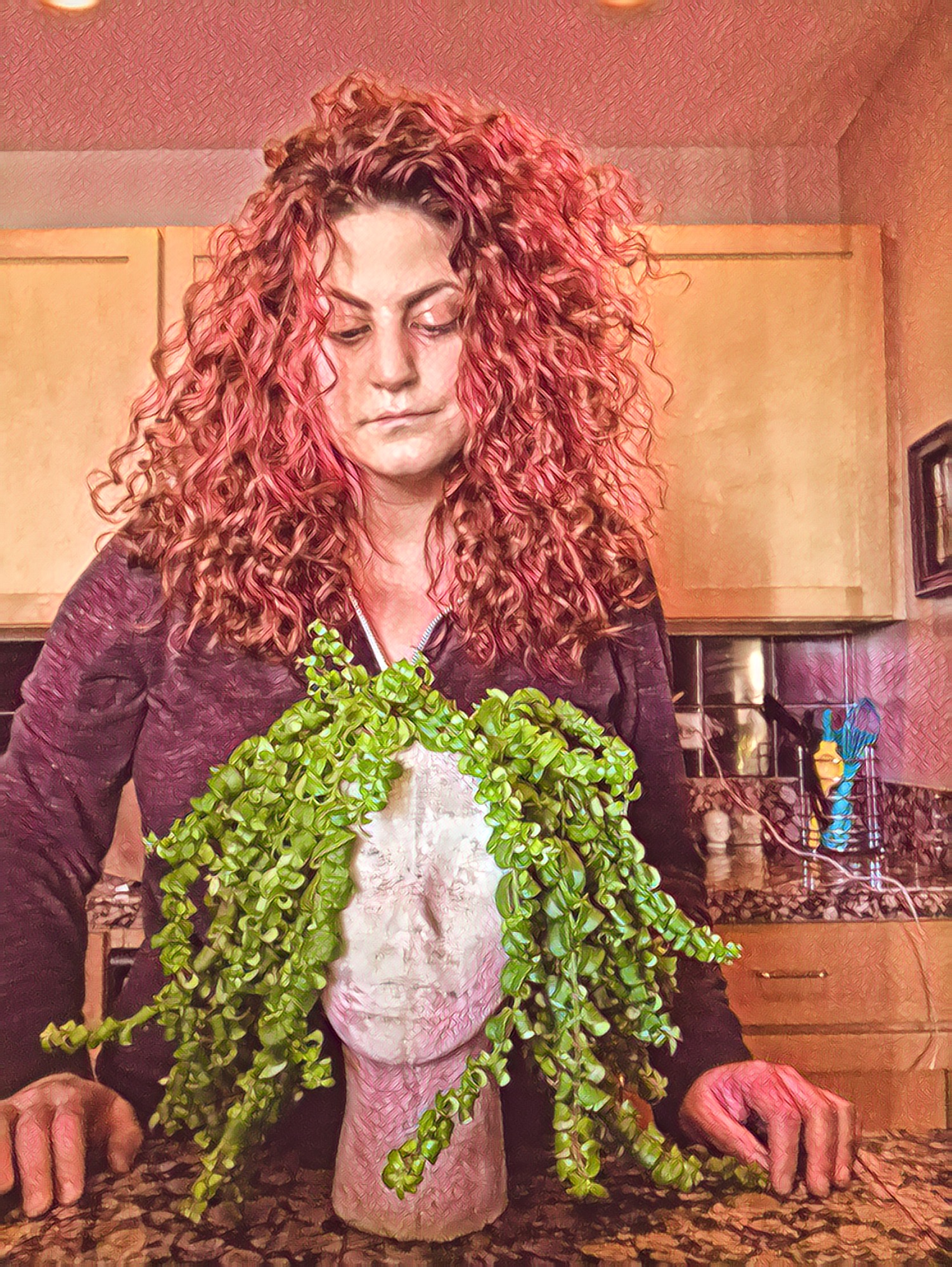
Around my 27th birthday, I met a friend at a wine bar to celebrate. She arrived wearing exceptional earrings and holding an odd looking plant. I whispered a desperate appeal to the universe: do not let that plant be for me.
Of course the plant was indeed for me. Grateful as I was, every plant that ever entered my possession met an untimely and appalling death. I wondered how long I could avoid inviting my friend over so as not to admit I murdered the poor plant in cold dirt.
But a miraculous and beautiful thing happened. The plant did not die. The plant lived. After about a year, and for purely aesthetic reasons, I moved the plant to a new location. It started to grow more of its brilliant, glossy, leathery leaves. I was delighted. For the first time since bringing the plant home, I wondered about the plant and its specific needs.
I did not even know the name of the damn thing. My research started with the Googling of terms that described its appearance: tropical, bright, colorful, exotic, waxy, veined, and speckled. Alas I discovered that my plant babe was a croton. This particular croton requires at least six hours of direct light each day which is why it did not produce new growth until I unintentionally moved it to a sunnier location.
After two years of keeping my magnificent croton from regrettable demise, I decided it was time to get a second plant. I picked up a cool looking guy at the grocery store. It, too, was a croton though its characteristics were so different from my first that I never would have guessed its identity. I promptly placed it in the path of direct sunlight as I had my first croton. A croton is a croton, I thought.
How wrong I was. Within days, my newest croton had dropped most of its leaves and burn spots developed on the ones that remained. Confused and disheartened, I wandered into the garden store in my neighborhood. It was there that I learned grocery stores are not good places to buy well-cared for plants, that crotons drop leaves in response to relocation and that some varieties only thrive in low-light.
It was in that urban oasis that I became a plant lady.
At present I have 28 plants in my tiny city condo. It hardly feels like enough.
At a time in my life when I feel stuck—in social work, in singledom, in an impossible housing market, in congenital heart disease hell—I need only look to my plants. My plants provide a profound sense of purpose, achievement and pleasure. In my plants I find comfort, understanding and joy.
Plants are unaffected by the free-will that afflicts humans. Plants do not place arbitrary limits on themselves, nor do they question their abilities to achieve, to grow, to shine. They simply grow how and when they can, as big and as tall and as far and as wide as they can.
Plants focus solely on their own survival and potential. One plant does not turn to another plant to compare its roots nor its leaves nor its structure. Plants lack the self-awareness that so often cripples the human spirit from showing up as intended.
Plants always turn to face the sun, no matter what insects or weeds or unsuspecting destroyers surround them. Plants take only what they need from the soil and their environment. They take no less, they take no more.
Plants in less than ideal conditions strive to adapt and survive. Plants are not defined by the circumstances in which they find themselves; plants grow deeper roots or climb higher if they need more water or more light. In the quest to survive and thrive, plants never give up.
Plants are content to exist as themselves. Plants do not require validation. The aesthetic and emotional value provided by plants, as air purifiers, natural humidifiers, and antidotes to headaches, high blood pressure, depression, anxiety, insomnia and more, is immeasurable.
When I look at or tend to my plants, I feel grounded and calm. I am connected to life, to growth, to energy. My plants assure me that I will not only survive, but thrive, that my circumstances do not define me, that my potential, with the right care and compassion, is limitless.
My plants inspire me to consider what value I bring to the world around me and how I can cultivate and sustain a sense of purpose outside definable circumstances.
I am a plant lady. Hear me roar.
Amazing! We already killed our Christmas tree :/
I am plant lady too. Perhaps there is a correlation between taking care of plants and people. I am also a member of the helping profession and working a psychiatric emergency clinic for appx 3 years. I am licensed professional counselor. All my plants outside and inside were dying until about 4 months ago when my husband dug up our front yard. Needless to say, I jumped in and planted some new ornamental grasses and hardier perennials. The grass didn’t die after a month or so and I thought “ I got this”. Well, I have killed a rosemary bush and some peace lilies since then, but still enjoy working in the yard and nurturing my indoor plant babies. Good Luck to you.